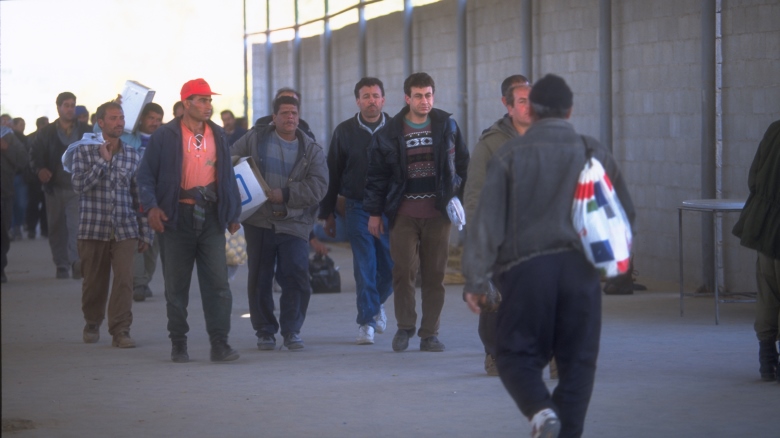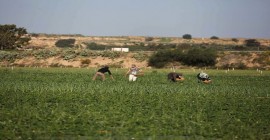Income Stagnation and Worsening Living Standards Continue for Palestinian Families

Tranlated by Sabrin Qadah
The prolonged period of slow economic growth has resulted in persistently high unemployment and stagnation in the average income of Palestinian citizens, according to the latest World Bank report on the Palestinian economy. The economy will not be able to reach its potential without a peace resolution but meaningful steps can avoid further deterioration.
The World Bank economic report will present its findings to the Ad Hoc Liaison committee (AHLC), a policy-level meeting for development assistance to the Palestinian people, on September 19, 2016 in New York.
“The Palestinian economic outlook is worrying with serious consequences on income, opportunity, and well-being. Not only will it affect the Palestinian Authority’s capacity to deliver services to its citizens, it may also lead to wider economic problems and instability,” said Marina Wes, Country Director for West Bank and Gaza.
The report states that, over the last decade, the Palestinian Authority’s (PA) fiscal consolidation efforts led to a decline in the deficit by 15 percent of GDP – an achievement rarely seen in other places around the world. Nevertheless, the PA’s finances remain fragile with declining budget support leading to a projected financing gap of about US$600 million in 2016.
The PA’s actions will not be enough to fully close the gap, particularly since local borrowing opportunities are now largely exhausted. Therefore, in the short-term donor support and in particular budget support is essential to avoid a fiscal crisis leading to wider economic problems. The Government of Israel could make a valuable contribution by further redressing some of the areas of fiscal loss under the current revenue sharing arrangements, and by releasing spectrum to Palestinian telecom companies which will translate into license fees paid to the PA.
Donor aid remains key for improving the humanitarian situation in Gaza. Out of the US$3.5 billion pledged at the Cairo Conference for rebuilding Gaza (2014-2017), 46 percent has been disbursed, which means it is US$1.3 billion behind schedule. Critically, only 16 percent of the total Gaza recovery needs outlined in the detailed assessment that was prepared after the 2014 war have been addressed. The report urges the donors to meet their commitments and to prioritize expenditures in line with the needs assessment.
“Over 70,000 people are suffering from prolonged internal displacement. Only 10.7 percent of the 11,000 housing units that were totally destroyed in the war have been rebuilt to date, and about 50 percent of partially and severely damaged houses still need to be repaired. The situation in Gaza is of great concern and the conditions required for post-reconstruction sustainable economic growth are not being put in place,” said Wes.
The report commends the Palestinian fiscal consolidation efforts and the recent Israeli decision to increase the quota of Palestinian workers in Israel, however, bold steps are still needed to address the immediate crisis and place the economy and the public finances on a sustainable path. A stock taking of all previous World Bank recommendations identifies these priorities.
The PA can carry out more sustained and fundamental reforms to enhance revenue collection and to reduce expenditures, with a particular attention to making the pay and pension systems for government employees fair to the rest of society. This can be done without reducing the quality of services or affecting the most vulnerable. Actions are also needed to improve competitiveness and generate jobs. Despite progress in recent years, Palestinian territories still rank 129th out of 189 countries in the World Bank’s 2016 Doing Business.
Efforts by the Government of Israel can mitigate the stress of economic stagnation. Israeli restrictions remain the main constraint to Palestinian economic competitiveness and have pushed private investment levels to amongst the lowest in the world, particularly the ones on Area C which could increase Palestinian GDP by 35 percent and lead to a similar increase in employment. GDP losses in Gaza since the blockade of 2007 are above 50 percent.





